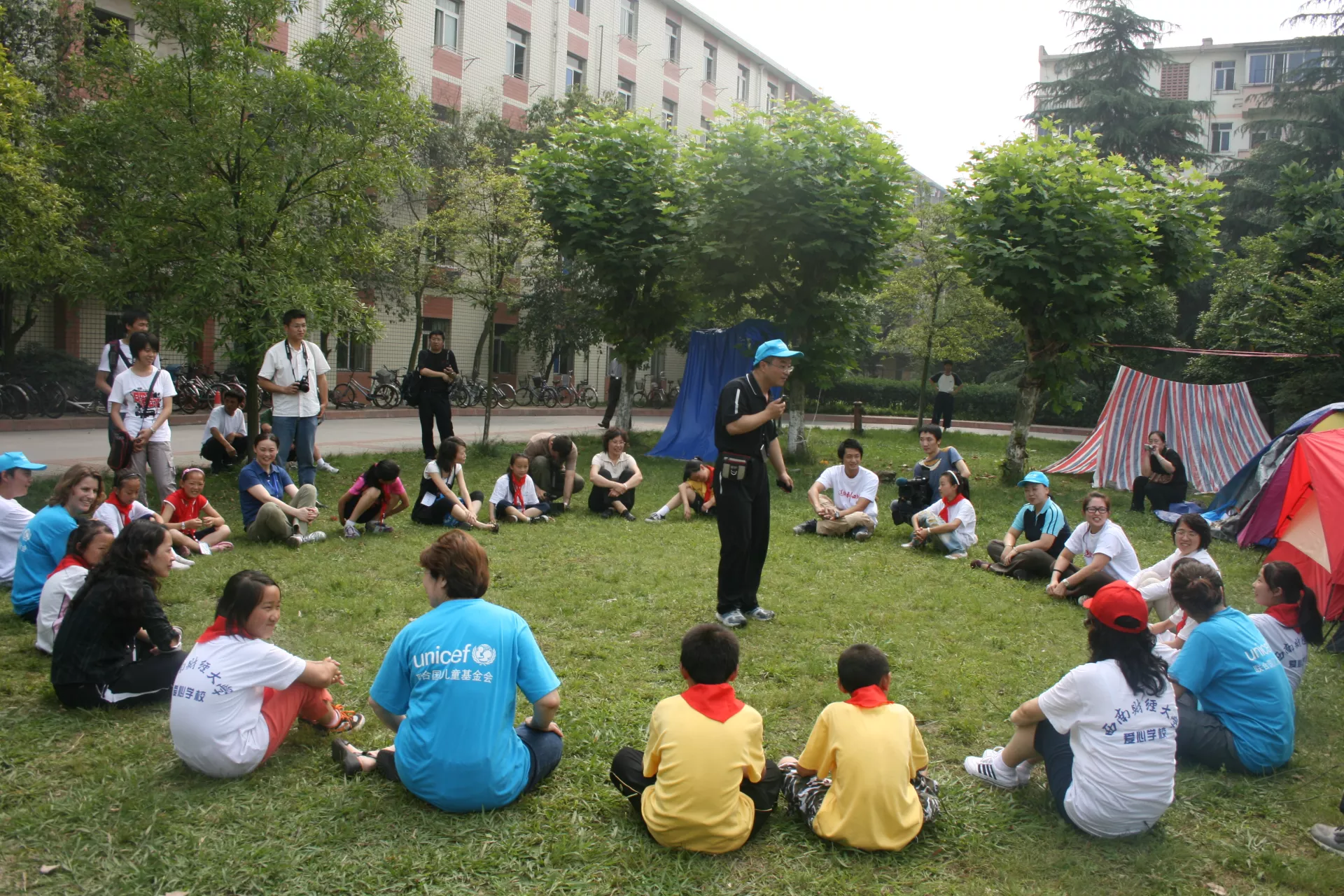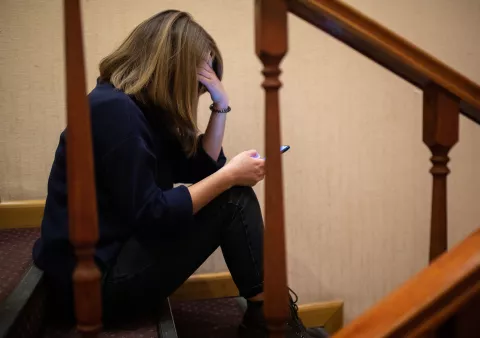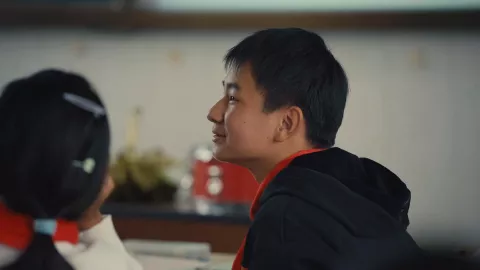Early Steps to Recovery
Early Steps to Recovery

Sixteen days after the devastating earthquake toppled schools, wiped out towns and killed thousands, hundreds of children in the worst-hit areas are still experiencing the staggering psycho-social aftershocks.
In Southwest University of Finance and Economics of Chengdu some 1000 students from boarding schools of Yingxiu Town of Wenchuan County and Pingwu County are accommodated. Information about parents and relatives occasionally flows in through the iron-barred entrance, leaving some dissolving into tears with news that loved ones are alive, while others are crushed by the terrible absence of news about missing family members.
UNICEF specialists and child psychologists have expressed their concern over the stress the child survivors in the quake zone are suffering, as well as the safety and sanitary conditions they are exposed to.
According to Sichuan Education Department, as of May 26, 4737 students in the province have been killed, accounting for 7% of total death toll of about 67,000 in Sichuan, and over 16,000 students injured in the earthquake, the 21st Century Business Herald reported on May 28. The newspaper also quotes statistics from the Construction Department of Sichuan, saying that nearly 2 million square meters of school properties have been toppled in the worst-hit areas, accounting for 1.3% of the total collapsed properties of nearly 15 million sq. meters.
Teachers have lost their own families
"The children we meet in the university look exhausted and stressed. They come from different schools in the quake zone, and have just arrived after trekking for days on mountain roads." Ms. Chen Xuefeng, UNICEF Child Protection Specialist said.
Ms. Chen has just returned from UNICEF's recent mission with Chinese government officials to support efforts to help children recover from post-earthquake psychosocial stress.
"A 14-year-old girl is called to the entrance to meet her grandparents, only to be told that her mother has died in the quake and her father has been amputated. She is so overwhelmed." Chen said.
The mission team also found the teachers on the edge of breaking down as some of them have lost their own families in the deadly quake and are too stressed to care for their students' needs.
"Teachers are one of the key factors in psycho-social support to children." Chen warned. "Children will feel more secure when they can return to their school routines."
Coordinated interventions needed
On May 27, UNICEF specialists and psychologists offered an initial training for volunteers who take care of relocated children. The children were invited to join group games and interactive play in which they are motivated to express themselves spontaneously.
"In fact, about 90 per cent of child survivors can be naturally resilient and return to their normal life through psycho-social support like re-unification with family members, recreational activities, schooling and other community activities. Only 10 per cent who are severely traumatized need to be referred to psychological counseling or special therapy." Ms Kirsten Di Martino, UNICEF's Chief of Child Rights in China said.
Caregivers and communities will give the children more psychosocial support to help them release the stress through group activities such as games and schooling, experts suggested.
"We are concerned about the quality and duplication of psychosocial intervention from different and 'migrating' voluntary social workers." Ms Kirsten said. "In some cases, a child survivor is accessed by two different groups of social workers in one day, which may bring more trauma to the child. The intervention should be consistent and sustainable."
Saftey concerns for children
A boy is left alone in a makeshift shelter in a stadium of Mianyang city. Many family members have taken off in desperate search for missing friends and relatives leaving children and the elderly behind.
For those survivors in the orphanage and social welfare institutions, children are mixed with the elders and disabled in the over-crowded shelters. "Some children just keep scratching their skins as they may not able to get a shower." Ms. Kirsten said.
In Jiuzhou Stadium of Mianyang city which accommodates at least 20000 refugees, children camp with their parents on the floors or even on the boxing arenas. Some young children are left unaccompanied which makes them more vulnerable for trafficking or abuse, the visiting joint-mission team noted.
Names and photos of children who are separated from their parents are posted on a wall to look for their whereabouts. Up to now, there is no official information about how many children are moved to this stadium or how many of them are separated or unaccompanied.
Children are under great stress. One young boy I met had lost both parents and could only state the English name – Dave – that his teacher had recently given him, and no other facts about his life. All partners concerned with protecting these children have a huge task in front of them.




